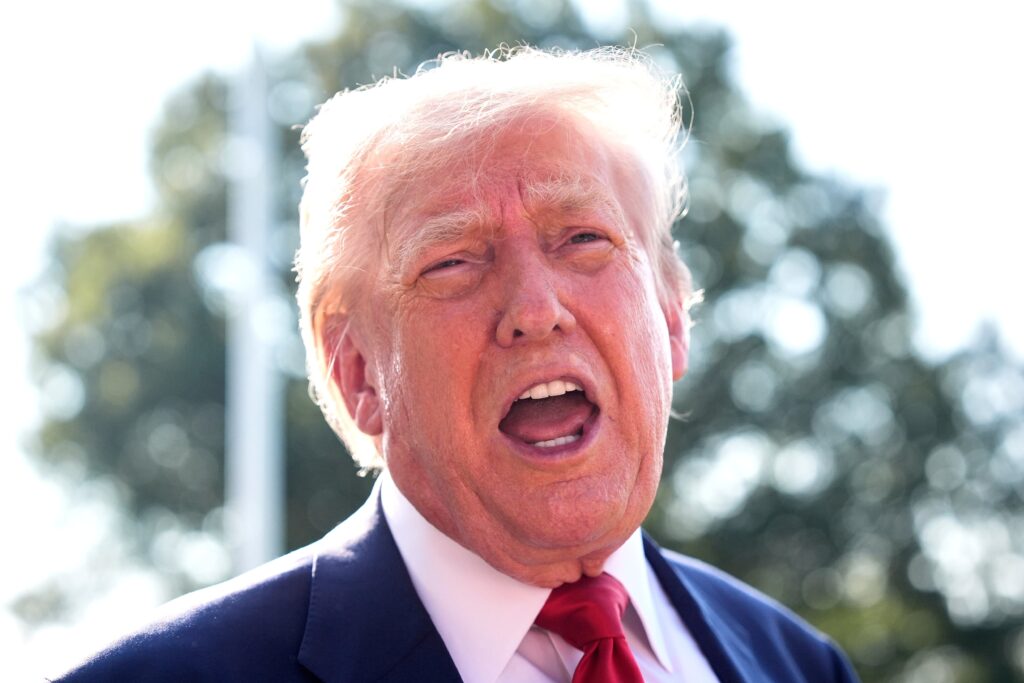As part of a series of measures the administration claimed would make America safer, President Donald Trump issued an executive order on Thursday that would facilitate the removal of homeless individuals from the streets.
According to the White House, the directive instructs Attorney General Pam Bondi to overturn court rulings and Justice Department agreements with local governments known as consent decrees that restrict those governments’ capacity to commit homeless individuals who pose a risk to themselves or others.
Bondi would also have to coordinate with the secretaries of Housing and Urban Development, Transportation, and Health and Human Services to prioritize funding for states and localities that enforce laws against open illegal drug use, urban squatting, urban camping and loitering, and tracking the whereabouts of sexual offenders.
Funding would be provided to transfer homeless individuals with severe mental illness or addiction who are causing public disturbance to treatment centers, assisted outpatient treatment programs, or other facilities.
Under the directive, drug injection sites and illicit drug use would not be eligible for discretionary payments for substance use disorder prevention, treatment, and recovery programs.
Several state and municipal officials, including Portland Mayor Keith Wilson and Governor Tina Kotek, said through spokespeople that they were still examining the decision and were not yet ready to comment, indicating that it is still unknown how the directive will effect Oregon.
Kotek’s spokesman, Elizabeth Shephard, stated that the governor is currently concentrating on her efforts to alleviate Oregon’s homelessness problem.
A number of states, including Oregon, have recently modified their civil commitment rules to make it marginally simpler to commit someone to involuntary mental health treatment. Mental health advocates pushed for the move, telling lawmakers that it was too difficult to force family members with serious mental illness who couldn’t make their own medical decisions to get treatment.
The limited number of residential treatment beds in the state that can be assigned to those who have been committed has been one issue with Oregon’s new statute. It would seem improbable that the state could instantly force a far greater number of people to obtain treatment in the manner suggested by the Trump order, given those limitations.
The governor of Oregon is considering a bill that would change the laws governing required mental health care and guidelines for mentally ill criminal defendants.
The bill is a patchwork of many ideas to change the laws governing involuntary commitment.
In Oregon, relatively few people get committed each year. According to the Oregon Judicial Department, fewer than 500 individuals were truly committed out of the approximately 8,000 civil commitment filings made in each of the previous three calendar years. According to hospital spokesman Amber Shoebridge, the Oregon State Hospital treated over 1,500 more patients as aid-and-assist patients in 2024.
The Trump administration defended the new order by claiming that on a single night in 2024, the final year of the Biden presidency, there were a record 274,224 homeless persons in the United States.
According to a data sheet on the order, the vast majority of these people suffer from a mental illness, drug addiction, or both.
The administration asserted that state and federal governments had squandered tens of billions of dollars on ineffective initiatives that only treat the surface reasons of homelessness, leaving other residents at risk for threats to their safety.
According to the administration, the most effective method of reestablishing public order is to move homeless individuals who pose a risk to themselves or others into institutional settings.
This report was written by Lillian Mongeau Hughes, a writer for The Oregonian/OregonLive who focuses on mental health and homelessness.





More Stories
Unclear how Trump order urging states to involuntarily commit homeless people will affect Oregon
Unclear how Trump order urging states to involuntarily commit homeless people will affect Oregon
Unclear how Trump order urging states to involuntarily commit homeless people will affect Oregon